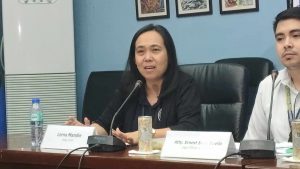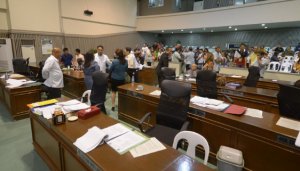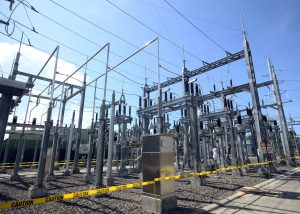The Davao City Water District (DCWD) is studying the possibility of increasing water rate by next year to cope with the Tax Reform for Acceleration and Inclusion (TRAIN) law.
“We are in the process of studying it right now and we are doing the preliminaries now. Likely, we will be introducing the increase of tariff by next year,” Bernardo Delima, DCWD spokesperson told reporters.
The current rate is P137.30 for the first 10 cubic meters.
Delima assured the public that they are bound with guidelines should the rate increase push through next year.
“We want to inform the public that when we raise our rate, it entails two requirements that we need to comply,” Delima said.
“First, it should not exceed the 60% of the current rate. Second, the minimum rate which is the first 10 cubic meters should not exceed 5% of the income of the low income group or the minimum wage earners,” he added.
According to Delima, without a subsidy from government, they absorb all the effects of TRAIN so they are considering water rate increase.
“Whenever we purchase goods, items, and others from private companies, it is all affected by TRAIN so as of now, we are all absorbing the effects of TRAIN law,” he said.
Delima said there is still no probable amount on how much the increase will be.
According to Delima, nothing is final yet because everything will be based on the approval of the Local Water Utilities Administration (LWUA).
“But this is still tentative because we still have to undergo process of LWUA. We cannot just increase water rate by tomorrow. LWUA will have to check our financial records to see if there is a necessity to increase the rate,” he said.
Delima said it has been 14 years since they increased the water rate.
“The last time we had a water rate increase was in 2005, 14 years ago. We were given 60% increase approved. But in 2005, only 30% was implemented and the other 30% was approved in tranches beginning 2012, then 2013 and 2014. And we don’t receive subsidy from the local and national government,” he said.



